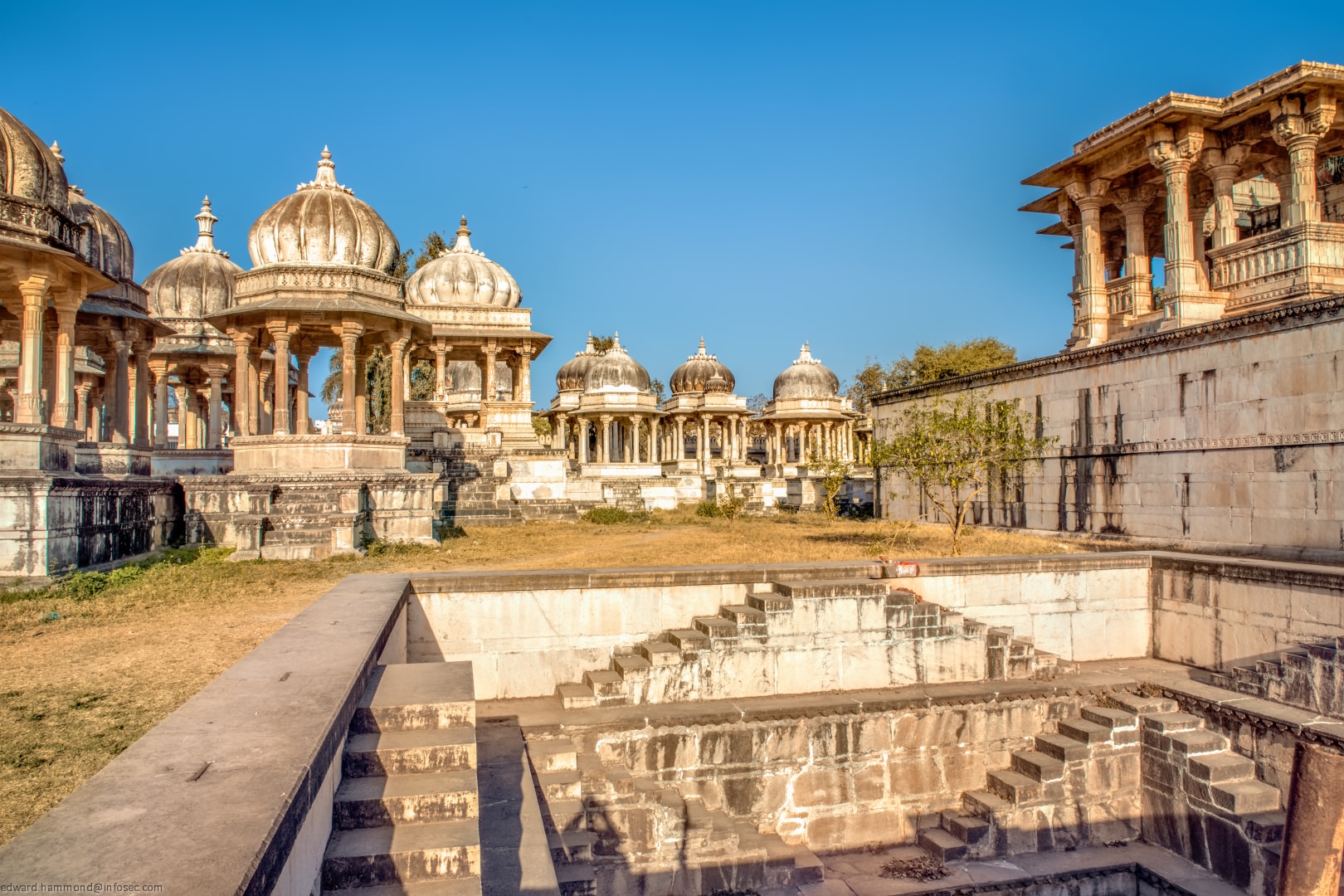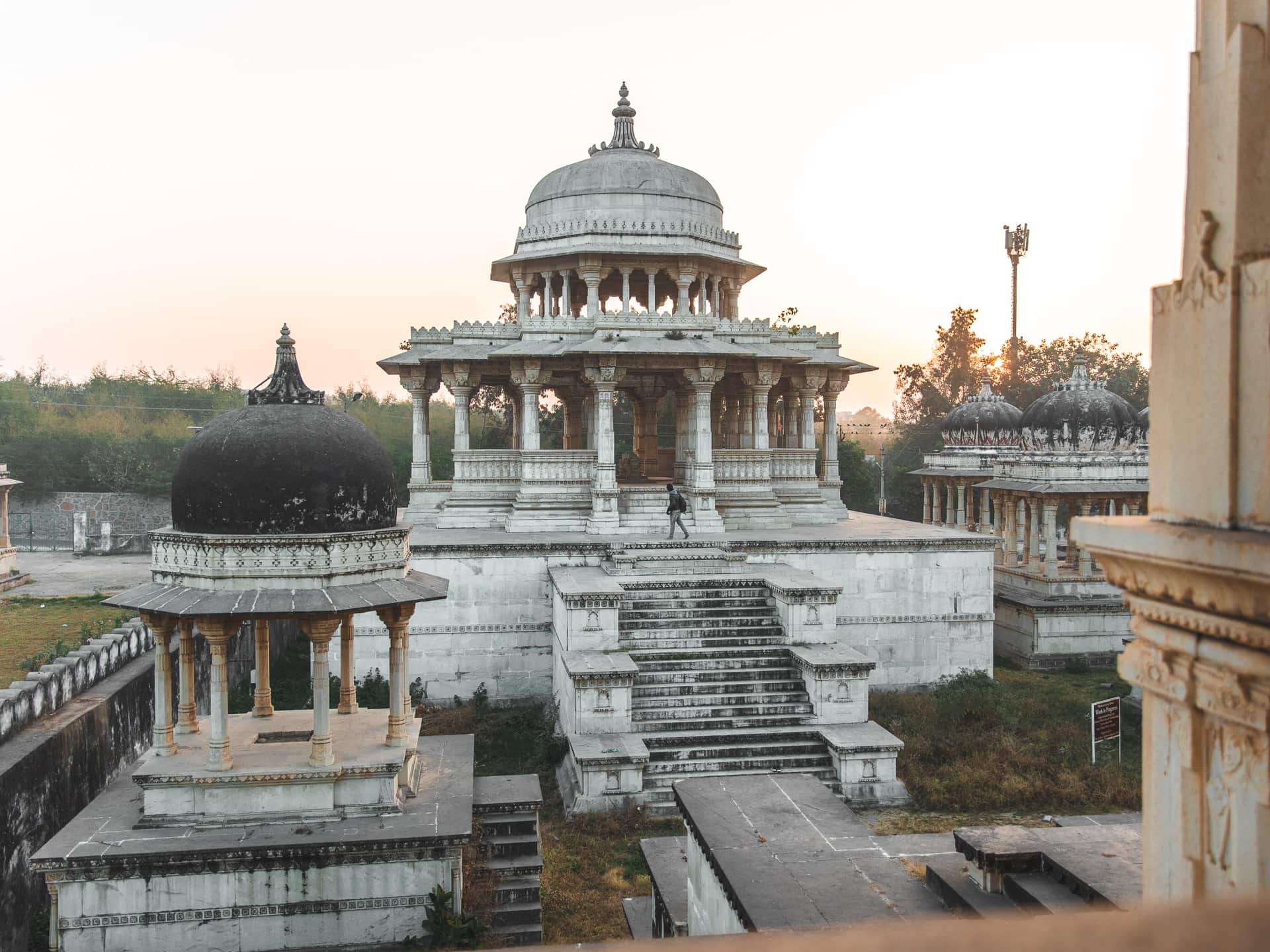1. Introduction: The Hidden Historical Gem of Udaipur
Amidst Udaipur’s bustling streets and serene lakes lies a quiet testament to its glorious past: the Ahar Cenotaphs. This historical site is a haven for those who seek stories of royalty and architectural grandeur.
2. The Legacy of Ahar Cenotaphs

A Testament to Royalty
Ahar Cenotaphs, also known as the Mahasatiya, is where over 250 cenotaphs of the royal family of Mewar stand as eternal symbols of respect and remembrance.
A Symbol of Mewar’s Rich Heritage
These structures are a reflection of the rich cultural and historical tapestry of Udaipur, revealing the legacy of bravery and leadership associated with the Mewar dynasty.
3. Architectural Marvels of Ahar Cenotaphs

Intricate Design and Craftsmanship
The cenotaphs are a fine example of Rajput architecture, with intricately carved pillars and domes that showcase the artisanship of their era.
Unique Features of the Cenotaphs
The distinctive chhatri-style domes, ornamental arches, and delicate carvings make each cenotaph a masterpiece of its own.
4. Ahar Cenotaphs and the Mewar Dynasty

Honoring the Maharajas
The cenotaphs serve as a tribute to the valiant rulers of Mewar, including Maharana Amar Singh and Maharana Fateh Singh, who left an indelible mark on Udaipur’s history.
Stories Engraved in Stone
Every cenotaph tells a story—of courage, legacy, and the grandeur of the rulers it commemorates.
5. The Archaeological Museum of Ahar
Rare Artifacts and Discoveries
Situated near the cenotaphs, the Archaeological Museum houses artifacts from as far back as 1700 BCE, including pottery, sculptures, and coins.
Connection to Ancient Udaipur
The museum bridges the gap between Udaipur’s ancient past and its royal history, providing a holistic understanding of the region’s evolution.
6. Why Ahar Cenotaphs Are a Must-Visit for History Buffs
For those fascinated by history and architecture, the Ahar Cenotaphs offer a rare glimpse into the life and legacy of Udaipur’s rulers, making it a treasure trove of knowledge and wonder.
7. Best Time to Visit Ahar Cenotaphs
The best time to visit is during the cooler months, from October to March. Early mornings or late afternoons offer the best light for photography and a more pleasant experience.
8. Tips for Exploring Ahar Cenotaphs
Navigating the Site
Wear comfortable footwear as the site involves walking across uneven paths. Take your time to explore each cenotaph and its unique features.
Capturing the Beauty
Don’t forget your camera! The interplay of sunlight and shadows on the intricately carved stone is a photographer’s dream.
9. Other Nearby Attractions
Combine your visit with a trip to Gulab Bagh or the Vintage Car Museum, both offering additional glimpses into Udaipur’s history and culture.
10. Enhancing Your Visit with UGuide
Plan your trip effortlessly with UGuide, the ultimate companion for exploring Udaipur. Get insights on timing, nearby attractions, and the historical significance of Ahar Cenotaphs through the app. Visit UGuide to make your journey seamless.
11. Conclusion: A Glimpse into Udaipur’s Regal Past
The Ahar Cenotaphs stand as a silent yet powerful reminder of Udaipur’s royal heritage. A visit to this historical site offers a journey through time, where architecture and history blend to create an unforgettable experience.






